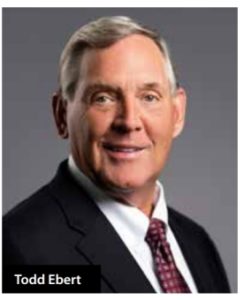By Todd Ebert
While cost-savings and delivering the best products at the best value remain central to the GPO core mission, hospitals and healthcare providers are increasingly relying on GPOs for a broad range of services integral to cost-effective patient outcomes, including shortages, emergency preparedness and disaster response, drug utilization and healthcare cybersecurity.
HSCA, which represents the nation’s leading healthcare group purchasing organizations, was at press time preparing to release its 2018 annual report, detailing the impact of healthcare group purchasing organizations and the ways they are evolving to meet these provider challenges.
For example, GPOs help members prepare, respond and rebuild after man-made or natural disasters. GPOs are invaluable partners for a healthcare organization’s emergency preparedness efforts, creating prevention plans and working to ensure an uninterrupted supply chain. In recent years, GPOs have provided vital assistance during Hurricane Harvey and Irma, California wildfires, the Las Vegas shooting and the Ebola outbreak.
When emergencies strike, GPOs help increase hospital and healthcare provider preparedness. HSCA member GPOs take steps ranging from increasing communication with members and suppliers to identify product availability and potential shortages, to collaborating with government agencies at the federal, state, and municipal levels. To help address the broader public threat of emergencies such as Ebola, GPOs create centralized response systems, conduct full-scale exercises of emergency management programs, and serve as a clearinghouse of product information, educational programs, and treatment protocols.
 In recent years there have been numerous high-profile reports of inadequate supplies of generic drugs that have served as the standard of care for some diseases. GPOs have a portfolio of solutions to help clients manage price changes and tackle drug utilization — issues closely connected to drug shortages. One of the most important offerings is rapid and reliable communication between manufacturers and providers. GPOs also provide regular communication with healthcare organizations about ongoing shortages and mitigation strategies. GPO drug utilization management services increase efficiency for individual hospital or other healthcare organization pharmacy departments by releasing them from the burden of performing this function manually; it also helps organizations manage drug shortages.
In recent years there have been numerous high-profile reports of inadequate supplies of generic drugs that have served as the standard of care for some diseases. GPOs have a portfolio of solutions to help clients manage price changes and tackle drug utilization — issues closely connected to drug shortages. One of the most important offerings is rapid and reliable communication between manufacturers and providers. GPOs also provide regular communication with healthcare organizations about ongoing shortages and mitigation strategies. GPO drug utilization management services increase efficiency for individual hospital or other healthcare organization pharmacy departments by releasing them from the burden of performing this function manually; it also helps organizations manage drug shortages.
HSCA and its GPO members advocate for policies that would help combat ongoing prescription drug shortages, mitigate the high cost of pharmaceuticals, including price spikes for generic drugs, and increase safe and affordable access to life-saving treatments through biosimilar drugs.
GPOs are also helping with the ongoing opioid epidemic. For example, one GPO engaged in contract negotiations with a pharmaceutical company for a product that is FDA-approved for emergency treatment of known or suspected opioid overdose. Thus, the GPO produced significant savings and addressed a need by its members in the first responder, public safety, and other classes of trade, in an existing procurement supply chain they were able to easily access.
To address cybersecurity threats, HSCA recently released cybersecurity key considerations for healthcare providers, medical device manufacturers and service providers to help protect patient health, privacy and safety. Recognizing that a one-size-fits-all approach doesn’t work across the healthcare system, HSCA’s cyber considerations address a broad range of possible scenarios in terms of the costs, technical complexity, risks and benefits associated with connected devices and services.
GPOs’ line of sight across the healthcare system means they are unparalleled in their ability to help their customers anticipate and respond to evolving challenges. As we look ahead, HSCA and its members remain committed to helping hospitals and healthcare providers deliver the most effective and affordable care possible to the patients they serve.
Todd Ebert, R.Ph., is president and CEO of the Healthcare Supply Chain Association (HSCA).

